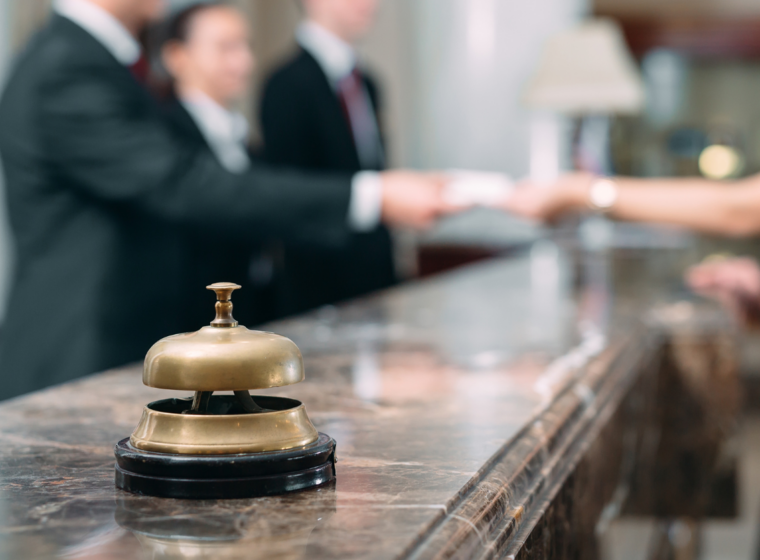Online reputation management is a cornerstone of any successful business- be it hospitality, technology, or retail. Reputation management involves utilizing platforms (i.e. Google, Facebook, and Yelp) to monitor customer reviews. Reading reviews gives businesses insight into what is working for their consumers and what is not.
A recent TripAdvisor study showed that 83% of those surveyed relied on reviews alone to help them pick the right hotel. That same study also found that 53% of people won’t even consider booking until they have browsed other customer reviews. As such, online reputation management of hotels is of vital importance, and it all comes down to the reviews.
There are three crucial elements when it comes to monitoring hotel reputation management. First is checking in on reviews across all of the different channels where your business exists, like social media, booking websites, and search engines. Second is learning how to incentivize and grow your review pool. And finally, it is extremely important to know how to collect data and utilize surveying, as this allows you to get to know your customers a little better.
Review Monitoring
Google is the biggest search engine in the world, with a whopping 70% of the search market share. As stated in an online review survey, Google is the number one review site, surpassing other databases like Yelp, Facebook, and TripAdvisor.
Having a Google My Business (GMB) account is the quickest and easiest way to see your reviews. GMB sends you a notification as soon as a review is posted. From there, you are able to read and respond to reviews accordingly. Google also sends notifications to the original poster if the review is getting a lot of views and likes. This can encourage customers to leave a review, as well, which can only help grow your clientele!
We’re living in the age of social media, where everybody and anybody has a voice. Being open to hearing reviews, both negative and positive, can greatly impact future bookings. Social media and hospitality reputation management could make or break a business.
Word-of-mouth power is probably the biggest way that social media can affect how customers feel about your hospitality business. For example, Facebook allows its users to “check-in” when they visit a business. From there, other users can comment on the check-in post and receive feedback from the original poster.
TripAdvisor allows businesses the option to utilize a service called Reputation Pro. This service can be immensely helpful when it comes to hotel reputation management because it can increase your property’s visibility, motivate guests to book with you, and allow you to collect reviews. It’s super easy to set up – simply log into your TripAdvisor account, choose the property you want to manage, and click on the Reviews tab to see Reputation Pro and all of the features that it offers.
Review Acquisition
There are multiple ways that you can go about collecting reviews for your hospitality business. Verbally asking for feedback, posting questions to your business’s social media accounts for your followers to respond to, and including review reminders on your website are three ways to encourage your customers to leave comments or concerns about their experience.
It’s important to go about acquiring more reviews in an ethical and legal manner. Below we’ve distilled a few key best practices from Jason Falls at Social Media Examiner:
- Do not offer customers a discount or incentive for posting ratings or reviews to a site. Google, Yelp, and other review platforms have strict guidelines in place that explicitly prohibit hotel and business owners from offering incentives for reviews.
- If you ask your guests to post ratings or reviews to a particular site, please only ask them to do so honestly and refrain from asking only for positive reviews.
Email and direct mail follow-ups are particularly effective ways to engage previous hotel guests and encourage them to leave reviews about their experience.
When in doubt, it is always in your best interest to respond to any and all reviews, good and bad! It lets your customers know that you care about their experience and that you will do anything in your power to ensure that they are heard and taken care of.
Data Collection and Surveying
The easiest way to find out what your customers are thinking is to create online surveys for them to fill out. You can use services such as Google Surveys and Survey Monkey to conduct research on your customers.
Setting up surveys on Google is very simple.
- Go to surveys.google.com
- Create a New Survey
- Write out your question and hit CONFIRM
- Select the audience you wish to target
- Review your survey and then send it in
Google will review the survey and send you the results once it has been completed.
For Survey Monkey
- Go to SurveyMonkey.com
- Sign in with your username and password (you can create a free account!)
- Click ‘Create A Survey’ at the top of the page
- Choose a title and a category
- Click on the ‘Collect Responses’ tab
- Choose how you would like to share your survey
- Share the link in any way that you see fit
Online Reputation Management for Hotels
For most guests, everything they know about your hotel before they book they’ve discovered online. Even though the hotel itself is a physical entity, its image and reputation are predominantly digital. Has a hotel manager or hospitality business owner, you need to know how to protect it. Employ the latter mentioned practices and platform to help build and protect your hotel’s image.
This post is part of BlueprintRF’s entrepreneur series, a collection of articles intended to equip business owners and executives with the tools, information, and resources they need to thrive in the hospitality industry.









